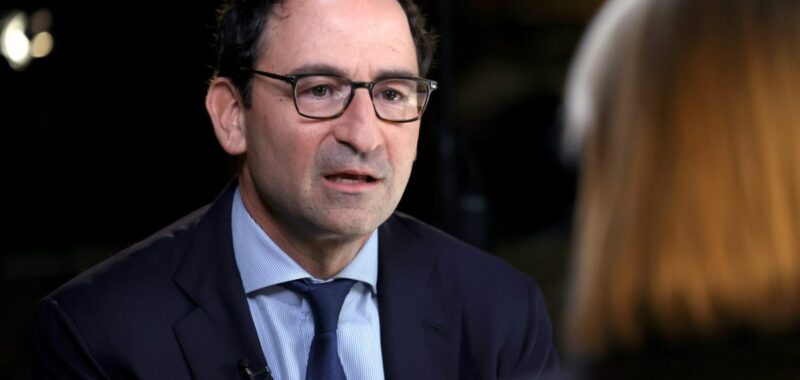Summer analyst season is in, and there are some written and unwritten rules for those vying for a gig on Wall Street (or Midtown, in the case of Blackstone). Interns will do as others did before them: Wear a cloud of cologne to a sports bar, block the street when heading to a lunch break at Pret, and don the somehow-still-popular uniform of a Patagonia vest. It’s tradition, after all.
But if these junior suits want to stick around past summer into Santacon and live the full Murray Hill lifestyle they’ll have to play the game a certain way. President and chief operating officer at Blackstone Jon Gray explained as much, outlining the rules to making it—not just at the management company, but in the workforce as a whole.
“I don’t think it’s any different for somebody in business as it is an athlete or a performer,” Gray said to new summer analysts this week. “You work harder, you care more.” Much as great performers are “just out there practicing more,” Gray noted, employees at that level are perhaps getting in a little earlier and triple-checking their work.
“They’re not just punching a clock, they genuinely care about what they’re doing,” he asserted of the type of worker that he deemed set for success. Most people at the top of Blackstone “are people who genuinely care about what they do,” he says. Of course, those at the top are more incentivized to care by multi-million-dollar compensation packages.
Showing that you care gets you far, but it’s not enough. Gray praised the merits of being “willing to take a little bit of personal risk and, you know, speak up.” Acknowledging that might be hard for interns who are just trying to figure out where the bathroom is, he explained that those who can do tasks better or faster will get far.
Goldman Sachs CEO David Solomon gave similar advice to his class of 2023 interns. Alongside other suggestions like being present and curious, he encouraged prospective hires to speak up. “You’ll quickly learn that our people are eager to hear your insights. After all, you represent the future of our firm,” he wrote in a LinkedIn post, adding that interns should “be on the lookout for any way you can contribute your ideas—big and small.
On the other hand, those who just stick to the rule book will find themselves running on a treadmill. Gray asserted that the worst response to a question or suggestion is: “That’s the way we’ve always done it.” Sticking to the norms for norms’ sake is not the key to thriving, in his eyes. “There’s always a way to do it better, to serve the customer in a more efficient way, to get to a better outcome,” he said. He went on to encourage interns to think of themselves as entrepreneurs in whatever job they’re in.
The finance sector, as portrayed in movies like American Psycho and The Wolf of Wall Street, isn’t necessarily known for being warm and fluffy. But Gray espoused the value of at least appearing nice.
“We’re all ambitious, we want to succeed, but sometimes people forget—treating other people nicely can be a bit of a secret weapon,” he said, in a somewhat Machevillian Mr. Rogers style. He’s not the only Master of the Universe looking to appeal to the customs of regular old humans. In 2017, JPMorgan Chase CEO Jaime Dimon told students that the most important tenets of leadership are “humility, respect.”
It’s not just about being kind to the person who pays your check, or in an intern’s case, dangles a job offer like a carrot. Gray said it’s about being nice to your co-workers, too. “Everybody’s just trying to do their job and it’s a lot more fun to be in a place where everyone is treated in a nice way,” he added.

